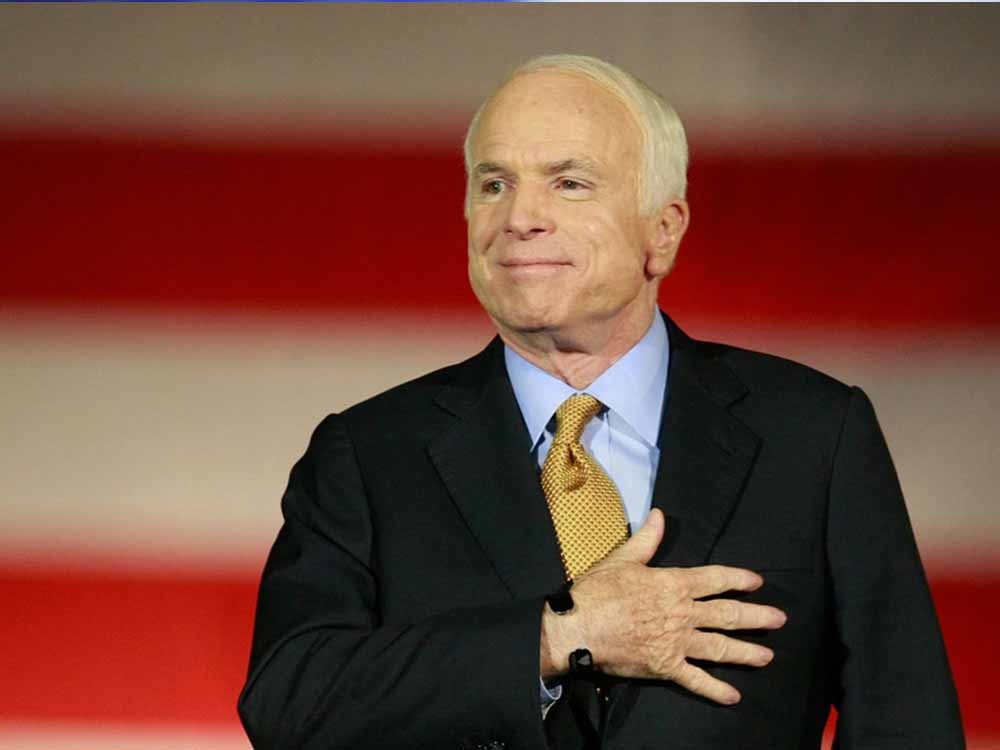John McCain in 2008: A Veteran Statesman’s Bid for the Presidency
John McCain’s presence in the 2008 presidential election marked the culmination of a distinguished military and political career. As the Republican nominee, McCain faced the challenges of a nation grappling with economic uncertainty and ongoing military conflicts. His campaign unfolded against the backdrop of a changing political landscape, and his journey through the 2008 election reflects a commitment to service and a vision for the future.
Military Service and Early Political Career
Born on August 29, 1936, in Coco Solo, Panama Canal Zone, John Sidney McCain III hailed from a family with a strong military tradition. His father and grandfather were both four-star admirals in the U.S. Navy. McCain followed in their footsteps, graduating from the United States Naval Academy in 1958.
McCain’s military service became a defining aspect of his identity. He endured over five years as a prisoner of war in North Vietnam after his plane was shot down in 1967. His resilience in the face of captivity and subsequent commitment to public service earned him admiration and respect.
Upon his return to the United States, McCain entered politics. He was elected to the U.S. House of Representatives in 1982, later moving to the Senate in 1986, where he became known for his independent streak and willingness to reach across party lines.
The 2008 Republican Presidential Campaign
John McCain’s decision to run for the presidency in 2008 was not his first attempt; he had sought the Republican nomination in 2000 but lost to George W. Bush. In 2008, McCain faced a competitive primary field before securing the nomination. His running mate, Alaska Governor Sarah Palin, brought excitement and controversy to the campaign.
The Republican National Convention in September 2008 showcased McCain’s commitment to service and his maverick reputation. His acceptance speech emphasized his dedication to country and his vision for a strong and prosperous America. The campaign, however, faced challenges, particularly as the global financial crisis unfolded, shifting the focus of the election to economic issues.
Key Issues and McCain’s Platform
McCain’s platform in the 2008 election centered on national security, economic stability, and a commitment to conservative principles. With his extensive military background, he positioned himself as a strong leader in the war on terror and emphasized the need for a robust national defense.
Economically, McCain advocated for tax cuts and reduced government spending to stimulate economic growth. His approach to healthcare and education favored conservative principles, promoting choice and competition.
However, the economic downturn and the unpopularity of the Iraq War posed challenges for McCain. Additionally, the selection of Sarah Palin as his running mate drew both praise and criticism, adding a dynamic element to the campaign.
McCain’s Presidential Journey and Election Outcome
On November 4, 2008, John McCain faced defeat in the presidential election. Barack Obama secured a decisive victory, capturing 365 electoral votes to McCain’s 173, with a popular vote margin of 53% to 46%. In his concession speech, McCain urged unity and emphasized the historic significance of Obama’s win.
McCain’s 2008 campaign represented the end of his quest for the presidency, but it did not mark the conclusion of his public service. He continued to serve in the Senate until his death in 2018, leaving a legacy of dedication to country and a commitment to bipartisan cooperation.
In summary, John McCain’s 2008 presidential campaign encapsulated a lifetime of service, from his military heroism to his political career. The campaign showcased his commitment to conservative principles, national security, and economic stability. While McCain did not secure the presidency, his legacy as a statesman and patriot endured, leaving an indelible mark on American politics.











